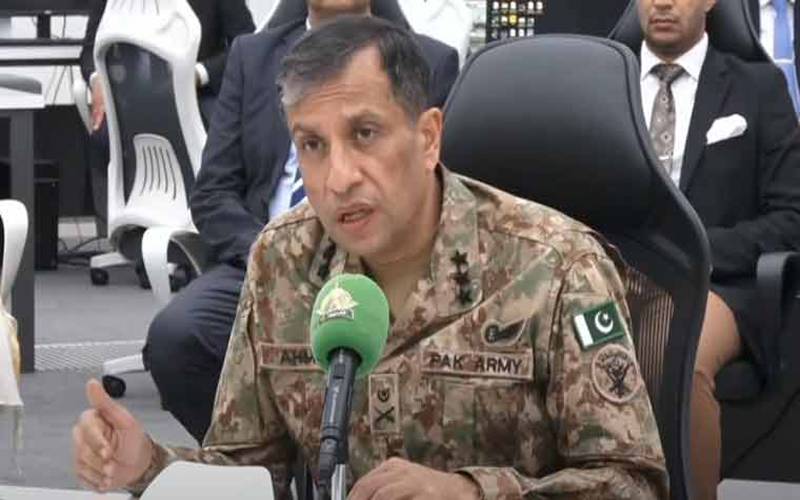MUZAFFARABAD: Director General Inter-Services Public Relations (DG ISPR), Lieutenant General Ahmed Sharif, has addressed the ongoing wave of protests in Azad Jammu and Kashmir (AJK), emphasizing that while public demonstration is a democratic right, disorder and violence only harm the region’s economic future.
Speaking during a dialogue with students and faculty at several universities in Pallandri, the DG ISPR responded to sharp questions regarding the recent activities of the Public Action Committee and widespread discontent over inflation, governance, and economic inequality.
“There is a political system functioning in AJK, and it must be engaged through peaceful means,” he said. “Protest is a right, but when it turns into chaos, it damages the economy, weakens institutions, and delays solutions.”
His remarks came amid increasing unrest across parts of AJK, where protesters have taken to the streets over rising living costs, unemployment, and what they describe as unequal distribution of resources. In some areas, demonstrations have turned tense, with instances of vandalism and clashes being reported.
General Sharif acknowledged the frustrations among the public but pointed out that sustainable reforms require civic responsibility. “If the state does not collect taxes, how can it pay salaries or offer subsidies?” he asked, highlighting that over 30 percent of AJK’s population is employed in the public sector, and a significant portion of the region’s budget goes toward salaries and pensions.
He urged the youth not to be swayed by “destructive politics” and instead channel their energy into dialogue and systemic participation. “Come into the system. Speak up. Solutions do not come through violence but through discussion.”
Touching on broader development, he said AJK is better placed than many regions in terms of education, infrastructure, and healthcare, but acknowledged there is room for improvement. He pointed to ongoing efforts in sectors like agriculture, IT, minerals, and renewable energy as part of a broader national vision to address long-term economic challenges.
Addressing nationalist sentiments and calls for civil disobedience, he reaffirmed the bond between Kashmir and Pakistan, stating that “Kashmir’s future lies with Pakistan” and warned that political instability benefits no one.
“Criticism is welcome. Protest is a right. But if it brings instability, everyone pays the price,” he said. “If peace prevails, the world will come to you. But if unrest continues, opportunities will move away.”
His remarks have sparked debate on social media, with parts of the student interaction widely shared. While some praised the transparency of the exchange, others argued that economic grievances require more than dialogue—they demand action.
The protests in AJK appear far from over, but the message from the military is clear: the path to resolution must be peaceful, not disruptive.


Comments are closed.